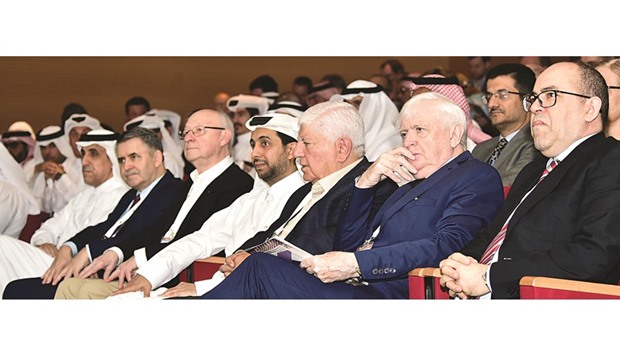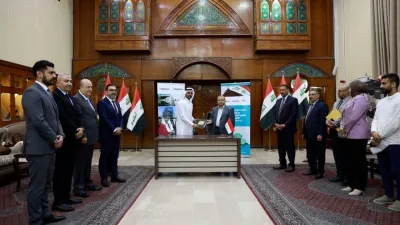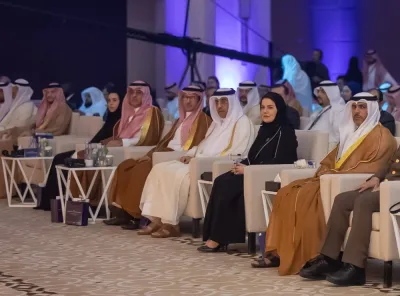Higher education in Qatar needs to become more inclusive so that the country is able to draw on the talents of a wider range of people, from all sectors of society – and especially groups who have not traditionally taken part in higher education, urged HE Dr Ibrahim al-Ibrahim, economic adviser at Emiri Diwan and member of Qatar University (QU)’s Board of Regents.
He was delivering a keynote address on “Excellence in Higher Education and its role in Qatar National Vision 2030” yesterday at the opening session of the “IREG Forum 2017: “Excellence as the University Driving Force”, aimed to provide a platform to discuss the various aspects of academic excellence, and to learn about new initiatives in academic rankings.
Addressing the two-day forum, a first for the region and organised by QU in collaboration with IREG Observatory on Academic Ranking and Excellence, Dr al-Ibrahim stated that the Qatari education sector cannot be complacent in the face of considerable challenges, such as the economic crisis, changing world demographics, the emergence of new competitors, new technologies and modes of working.
“Qatar needs to become more outward-looking and more innovative. For Qatar to reach its potential as a society, it must enlarge its pool of talents. And for Qatar University to provide quality, relevant higher education to more students from diverse backgrounds, it has designed mechanisms to support the students and bridge the gap between the level of education of incoming students and its own levels that are, and have to remain of international standards.
“On the other side of the spectrum, the university provides opportunities for its current students to engage in more advanced courses and in new forms of teaching and learning such as Massive Open Online Courses that are opening up new opportunities in education, and giving the university a chance to reshape the education systems.”
Dr al-Ibrahim suggested that QU needs to equip students with the entrepreneurial and work-relevant skills they need. The 14 research centres the university created are essential in that endeavour. They propose a new approach to innovation based on structured partnerships between universities, research centres and businesses. Such centres help the country use the potential of higher education to re-energise its society and to organise a genuine mindset change towards a more entrepreneurial culture.
“The Qatar National Research Fund, established in 2006, is also another source of strength at the national level, helping in that direction. QU has been making full use of this fund in the last five years, becoming one of the fastest growing institutions for research in the region. Its researchers’ publications have increased by approximately 246% in this period.
Dr al-Ibrahim observed that QU has been able to “flourish” on rankings, despite the flaws in the rankings methodology and to score well worldwide by top ranking institutes (QS and THE), benefiting from its balanced performance in research output and academic reputation. These results prove that the efforts of Qatar to invest its wealth into education and research are bringing rewards in the ranking systems.
QU president Dr Hassan al-Derham highlighted the necessity to define if ranking is a means or an end. “At QU, we believe that ranking is a means to compare our level of excellence with other academic institutions, to measure our research effectiveness, to evaluate our commitment in meeting the needs of the labour market, and to assess our relationship with regional and international partners.
Referring to ranking standards Dr al-Derham said QU aims to reconsider all ranking standards to make them more comprehensive and flexible, in line with the needs of the region.
“We have recently met with international ranking institutions from which we received feedback in this regard. Now, it is the time to get the view of IREG Observatory as an expert in the field of ranking, especially that IREG has various ranking interests that meet the objectives of QU,” he added.
IREG Observatory president Dr Jan Sadlak said there are a number of reasons for the increased attention to excellence. Higher education became a key mechanism for economic and social development. As ranking is gaining importance in society, it is increasingly subject to competition and various expectations of the major stakeholders in higher education and science.
Dr Francisco Marmolejo, the World Bank Lead Global Solutions Group on Tertiary Education and Lead Education Specialist for India, maintained that ranking has put a tremendous pressure on higher education institutions for the wrong reasons and with the wrong tools.
“This creates an important challenge for higher education institutions. There are significant benefits of ranking as it becomes a proxy of quality of higher education institutions, a source of comparison and a good tool for decision-making. However, higher education institutions should be careful about excessively relying on rankings as the main indicator of excellence and relevance in higher education. Ranking should be seen as a means or tool not as an end.”
Participants include higher education experts and university faculty and specialists from education-related organisations from Brazil, China, India, Kazakhstan, Poland, Portugal, Saudi Arabia, Slovenia, South Africa, Turkey, the UK, the US and the UAE.

HE Dr al-Ibrahim, Dr al-Derham and other dignitaries at the opening session of the forum at QU yesterday.


